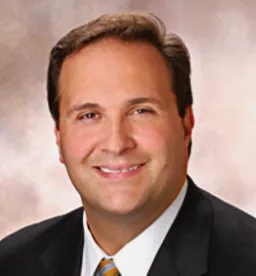The New Jersey Supreme Court will review a terminated company executive’s whistleblower claim to determine whether in allegedly raising concerns about the safety and efficacy of his employer’s products, he would be protected from firing by the state’s Conscientious Employee Protection Act (“CEPA”), even though voicing such concerns was part of his job. Lippman v. Ethicon Inc. et al., No. A-65/66-13 (certification granted Mar. 14, 2014).
Dr. Joel S. Lippman was the Worldwide Vice President of Medical Affairs and Chief Medical Officer of surgical-product developer Ethicon Inc., a Johnson & Johnson subsidiary. After his transfer to Ethicon from Ortho-McNeil Pharmaceutical, another J&J subsidiary, Lippman alleged he raised safety and efficacy concerns about several products and that his suggestions resulted in delays bringing products to market and in a product recall. Lippman was terminated on May 16, 2006, allegedly for having a consensual romantic relationship with an employee working in his department, but who was not his direct report. Lippman claimed this alleged relationship was a pretext to terminate him for raising his concerns.
The employer won summary dismissal of Lippman’s New Jersey whistleblower suit in the trial court. The court stated that “[a]ll evidence indicates that [p]laintiff performed his job by notifying his supervisors of issues and Ethicon responded appropriately” and, therefore, Lippman failed to present a prima facie case under CEPA. Holding it was Lippman’s job to raise issues regarding safety, the court ruled Lippman “failed to show that he performed a whistle-blowing activity.” (The court relied in part on the Appellate Division’s Massarano v. New Jersey Transit, 400 N.J. Super. 474 (App. Div. 2008).)
On appeal, Lippman argued he was protected under CEPA, despite the fact that raising concerns about product safety was among his essential job functions, and could claim he was fired unlawfully in retaliation for raising concerns. He asserted before the New Jersey Appellate Division that the trial court’s interpretation of CEPA was unreasonably narrow and that it had lost sight of state Supreme Court decisions interpreting the law broadly to remove the impulse for retaliation that discourages workplace whistleblowing.
The appellate panel agreed. It held Lippman’s position within the company had no bearing on the viability of his CEPA claim and declared incorrect the trial court’s “legal assumption that an employee’s job title or employment responsibilities should be considered outcome-determinative in deciding whether the employee has presented a cognizable cause of action under CEPA.” Further, ruling that Lippman had made a prima facie case for a CEPA violation, the appellate panel stated that “watchdog employees…are the most vulnerable to retaliation because they are uniquely positioned to know where the problem areas are and to speak out when corporate profits are put ahead of consumer safety.” It explicitly declined to endorse the opinion that an employee’s job responsibilities should be considered in deciding whether he or she has engaged in protected whistleblowing activities.
In granting certification, the New Jersey Supreme Court will address whether and under what circumstances employees obligated by the duties and responsibilities of their positions to bring forward concerns are protected from retaliation under CEPA.




 />i
/>i

